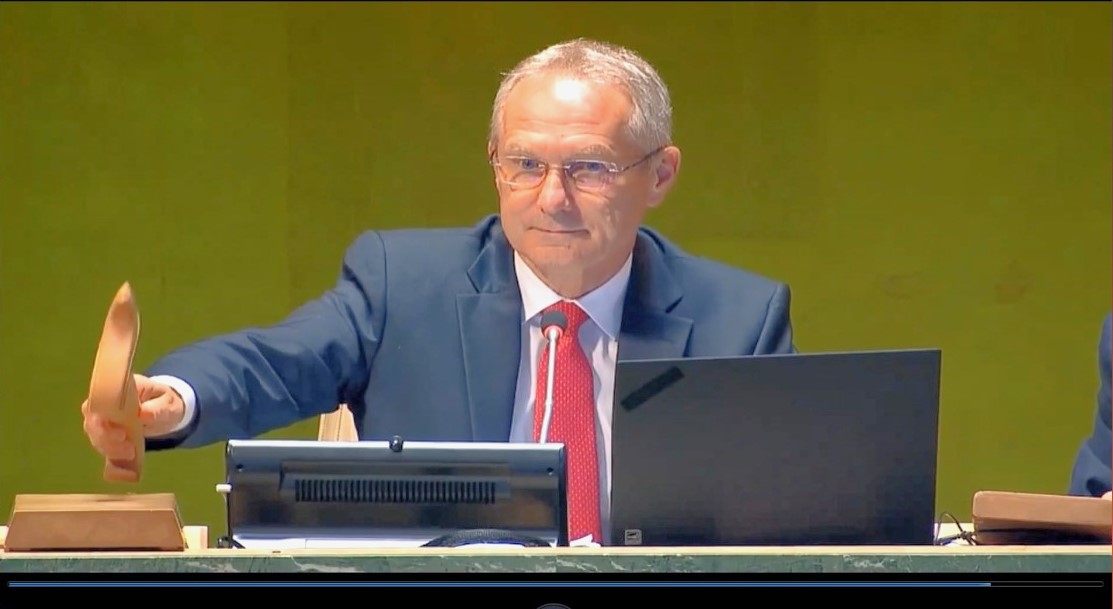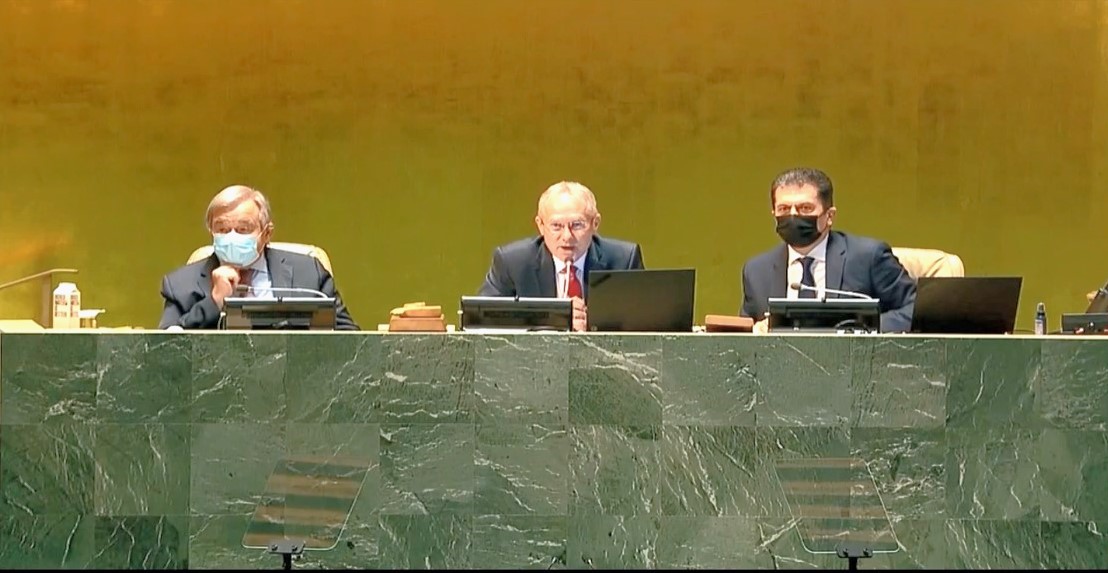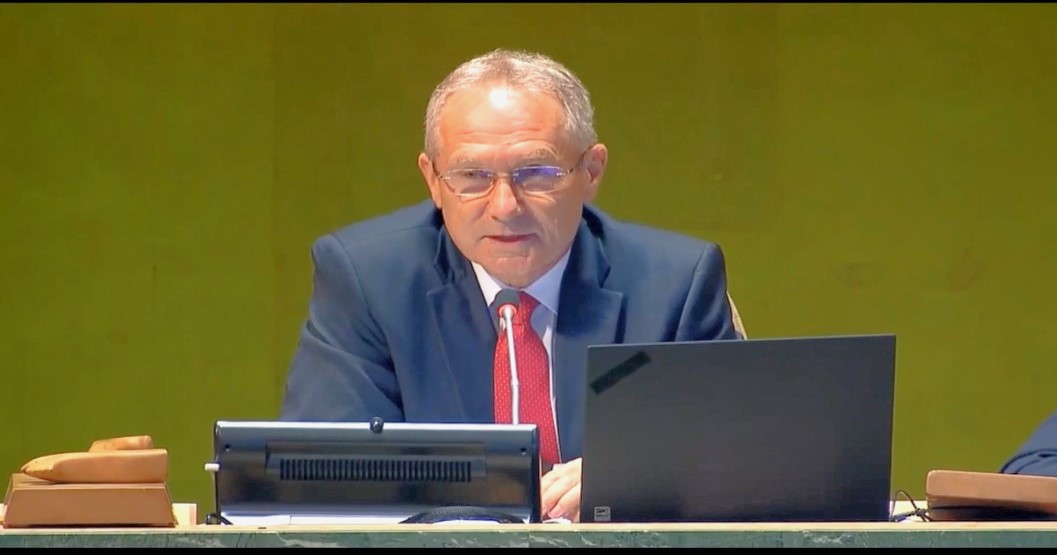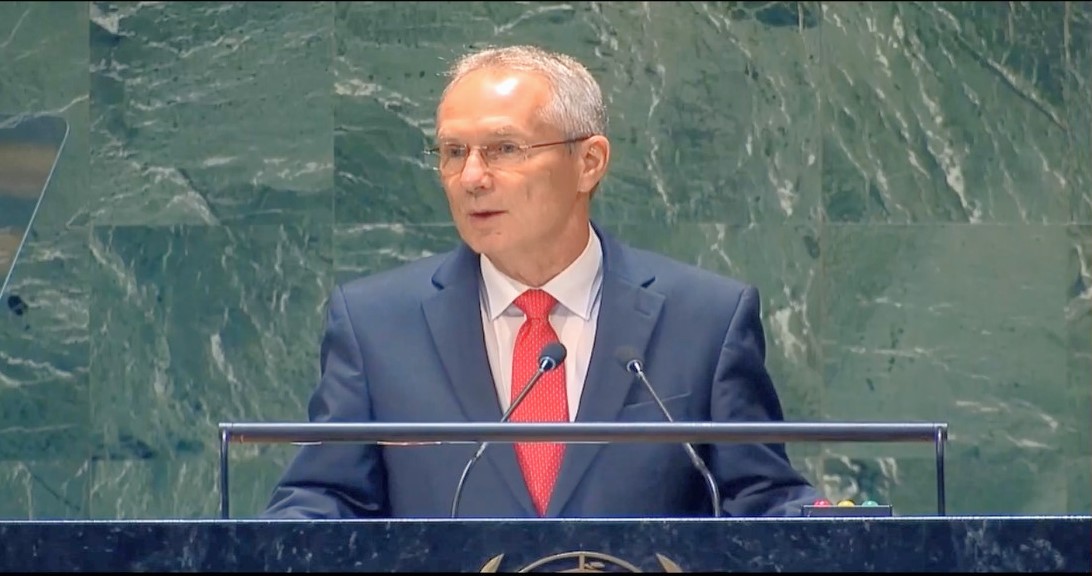


“A world of widening geopolitical divides and protracted uncertainty” confronts the General Assembly as it begins its seventy-seventh session, said Csaba Kőrösi (Hungary). While more manageable, the COVID-19 pandemic continues to wreak havoc across the globe, and acute food insecurity, soaring energy prices and global supply-chain disruptions mean even less food for those who are already lacking it. Further, conflict is creating humanitarian upheavals not seen since the Second World War.
“The conflict in Ukraine has been a turning point for all of us,” he stressed, adding that, unless the international community is vigilant, war could reappear more frequently around the world. Against that backdrop, Member States must uphold and protect the values and principles of the Charter of the United Nations. “There can be no cherry-picking,” he emphasized, urging a preventative approach to conflict and crisis and calling for an end to the war in Ukraine that is killing people, development, nature and the dreams of millions.
“The only way to achieve better outcomes is to transform,” he said. The 2030 Agenda for Sustainable Development, Sendai Framework on Disaster Risk Reduction (2015-2030), Paris Agreement on climate change and Our Common Agenda all point in the right direction. “What remains to be seen is whether we will deliver,” he said, noting that the General Assembly — as the Organization’s chief deliberative body — bears a special responsibility in this regard. As such, he declared that he would endeavour to harness the talents of Member States to forge “Solutions through Solidarity, Sustainability and Science”, the motto of his presidency.
However, emphasizing that “Governments do not have a monopoly on good ideas”, he urged meaningful engagement with civil society, academia and the private sector, which will enable researchers and practitioners to present solutions rooted in facts, verified information and science. Further, civil society holds first-hand knowledge that is critical to identifying and implementing context-specific solutions. He also emphasized the need to engage young people in the United Nations’ work, so that “when they sit in these seats, they can come with better plans and ideas than we did”.

Conflicts will increase as the planet warms and natural resources grow scarce, he pointed out. However, while it looks as if Mother Nature is fighting back, few of her weapons are as destructive as those humanity has created. Never in the past 40 years has the risk posed by the use of nuclear weapons been greater than it is today. This ominous reality necessitates that the international community unites around the issue of disarmament, including small arms and light weapons, the proliferation of which obstruct development and progress around the world.
United Nations Secretary-General António Guterres, welcoming the incoming President, said that the three ingredients of the President’s motto are essential as the General Assembly addresses shared challenges and develops solutions for a better, more peaceful future. “The many challenges that defined the seventy-sixth session are still very much with us as we look to the seventy-seventh,” he observed, highlighting a world in peril as the United Nations works to advance peace, human rights and sustainable development amidst conflicts, climate change, a broken global financial system, poverty, inequality and hunger.
Addressing these common challenges will require continued solidarity in demonstrating the great promise and potential of the Organization, as “the United Nations is the home of cooperation — and the General Assembly is the life within that home”. Member States represent the beating heart of global cooperation, and the months ahead will continue testing the strength and durability of the multilateral system.
“The world is looking to you to use all of the tools at your disposal to negotiate and forge consensus and solutions,” he stressed, calling for debate, deliberation and diplomacy — the eternal tools representing the best pathway to a better, more peaceful world. The seventy-seventh session must be “a moment of transformation — for people and planet alike”, he added.
At the outset of the first plenary meeting, the General Assembly observed a minute of silence for prayer or meditation, keeping with the rules of procedure. Following the opening statements, it turned to its agenda, first taking note of the Secretary-General’s letter (document A/77/334) informing the Assembly of Member States in arrears of their financial contributions to the United Nations within the terms of Article 19 of the Organization’s Charter.
[Under Article 19, a United Nations Member in arrears of its financial contributions to the Organization shall have no vote in the General Assembly if the amount equals or exceeds the amount of the contributions due from it for the preceding two full years. The Assembly may, nevertheless, permit such a Member to vote if it is satisfied that the failure to pay is due to conditions beyond the Member’s control.]
The Assembly then appointed Angola, Austria, China, Guyana, Maldives, Russian Federation, United States, Uruguay and Zambia to its Credentials Committee.
In its final order of business, it took note of a letter dated 6 September from the Chair of the Committee on Conferences to the President of the General Assembly (document A/77/329), authorizing the following entities to hold meetings at Headquarters during the main part of its regular session: Committee on Relations with the Host Country; Independent Audit Advisory Committee; Committee on Non-Governmental Organizations; Conference on the Establishment of a Middle East Zone Free of Nuclear Weapons and Other Weapons of Mass Destruction; Executive Board of the United Nations Development Programme, of the United Nations Population Fund and of the United Nations Office for Project Services; Committee on the Exercise of the Inalienable Rights of the Palestinian People; Executive Board of the United Nations Entity for Gender Equality and the Empowerment of Women; and Ad Hoc Working Group of the Whole on the Regular Process.
 Celebrity Media TV
Celebrity Media TV









